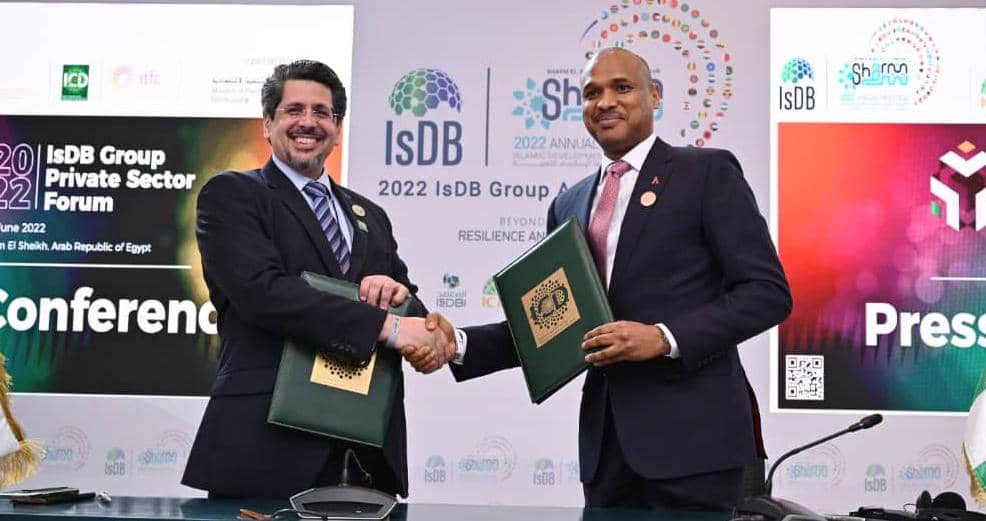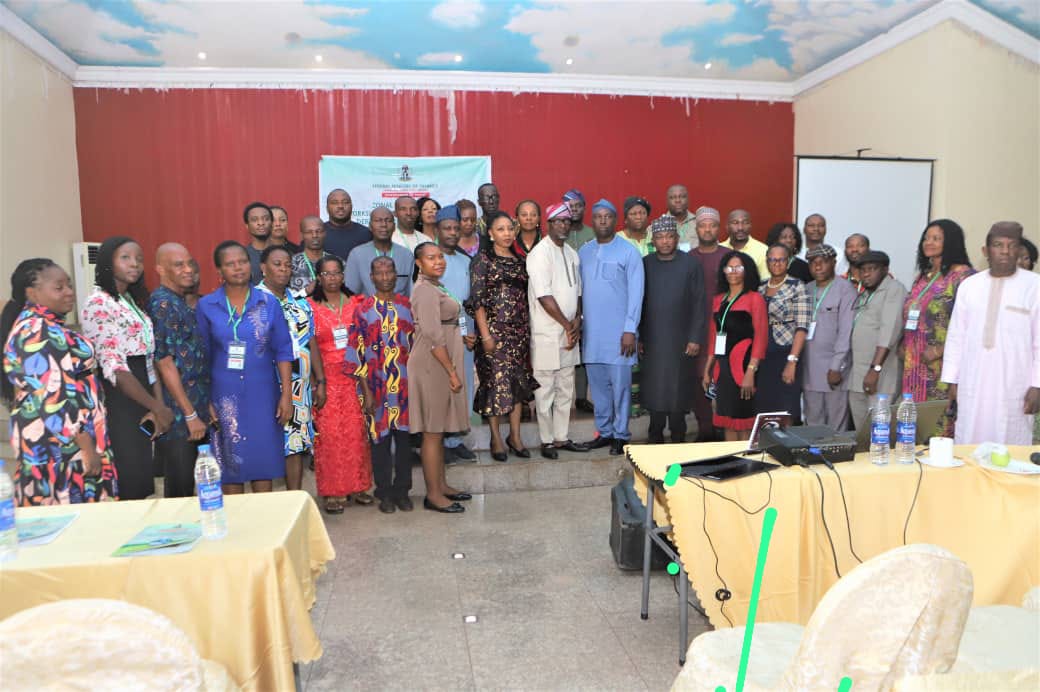Business
TAJBank, ICD seal pact on capital projects’ financing in Nigeria

Joel Ajayi
TAJBank Limited, Nigeria’s leading non-interest bank, has signed a Memorandum of Understanding(MoU) with the Islamic Corporation for the Development of the Private Sector (ICD), a member of theIslamic Development Bank (IsDB) Group, aimed at attracting funding for major infrastructure projects inNigeria.
The MOU signing between TAJBank and the ICD is to express a convergence of will between both entities and build a relationship between the Nigerian lender and the international organization toexplore avenues of financing key capital projects in the Country.
According to the bank’s board, the Sukuk will be offered in tranches of N10 billion each as soon as regulatory approvals are secured.
Speaking on the MOU after the signing, TAJBank’s Managing Director/CEO, Mr. Hamid Joda, enthused: “We are deeply delighted to have crossed another milestone with the signing of this MOU and especially with the Islamic Corporation for the Development of the Private Sector (ICD), it only further buttresses our intention of stimulating investments in critical sectors of the economy leading to national development.
“As we all know, Nigeria has a huge infrastructure gap that requires funding through long-term fundslike that of the ICD”, Joda added.
In his remarks on the deal, the bank’s Executive Director, Mr. Sherif Idi, also expressed his joy over thedevelopment, stressing that the signing of the MoU further demonstrates that “TAJBank is sustaining its giant strides, and this is seen in this partnership as we hope to do more in securing investments that will further bring about creation of jobs and production for better national advancement.”
TAJBank, a leading non-interest bank in the country, commenced operations about two years ago and has accomplished several milestones, including expanding its branch network to 22 within its franchisearea during the period.
The non-interest banking services provider had a few days ago unveiled plans to launch a private sector targeted N100 billion Sukuk programme under a Mudaraba structure that will afford it the opportunity to grow its capital base and by so doing, position it on a strong pedestal to finance large and long-term projects in Nigeria.
The ICD is a multilateral development financial institution under the IsDB saddled with the responsibilityof supporting the development of its member-countries through the provision of finance for private sector projects, promoting competition and entrepreneurship and encouraging cross border investments, amongst other key responsibilities
Business
Ministry of Finance Launches Digital Platform For Enhanced Overnight of Duty Exemptions Organizes Stakeholders’ Workshop

In a significant advancement to streamline fiscal management, the Honourable Minister of Finance and the Coordinating Minister of the Economy, Mr Wale Edun has announced the integration of the Incentive Monitoring and Evaluation Platform (IMEP) into the Import Duty Exemption Certificate (IDEC) programme, thereby allowing for enhanced monitoring and evaluation.
The IDEC programme strategically reduces import duty burdens for priority sectors such as manufacturing, agriculture, and healthcare, stimulating economic growth and national development.
Integrated into the IDEC framework, the newly launched IMEP ensures that only eligible entities benefit, rigorously enforcing compliance and optimising tax expenditures to reduce waste, block leakages and enhance economic equity.
Key features of the IMEP include an automated claw-back mechanism for recouping waivers from defaulters, real-time e-report generation and a centralised database that enhances the efficiency of our verification processes.
IMEP aims to ensure that tax incentives are rationalised to deliver maximum economic impact, aligning with the government’s commitment to reducing waste, blocking leakages, and fostering a robust and equitable economic environment. IMEP’s precise monitoring capabilities will significantly enhance the strategic allocation of exemptions and support the government’s objective to ultimately reduce tax expenditures.
To acquaint all stakeholders with the upgraded IDEC framework, the Ministry of Finance will host a webinar on April 25th, 2024, by 12 noon (WAT). Key industry participants, including manufacturers, importers, and representatives from MDAs and NGOs, are invited to engage in this session to understand the enhanced features and benefits of the IMEP.
AaaaaaaaaaaaaaaaaaaaaaaaaaaaaaaaaaaaaaaaaaaDetails for the webinar will be available on the Ministry of Finance’s official website and the IDEC YouTube channel.
-

 Featured5 years ago
Featured5 years agoLampard Names New Chelsea Manager
-

 Featured4 years ago
Featured4 years agoFG To Extends Lockdown In FCT, Lagos Ogun states For 7days
-

 Featured5 years ago
Featured5 years agoNYSC Dismisses Report Of DG’s Plan To Islamize Benue Orientation Camp
-

 Featured4 years ago
Featured4 years agoChildren Custody: Court Adjourns Mike Ezuruonye, Wife’s Case To April 7
-

 Featured3 years ago
Featured3 years agoTransfer Saga: How Mikel Obi Refused to compensate me After I Linked Him Worth $4m Deal In Kuwait SC – Okafor
-
Sports2 years ago
TINUBU LAMBAST DELE MOMODU
-

 News9 months ago
News9 months agoJubilation In Kaduna As Tribunal Upholds Ekene Adam Winner Of Reps Election
-
Featured5 years ago
Board urges FG to establish one-stop rehabilitation centres in 6 geopolitical zones
